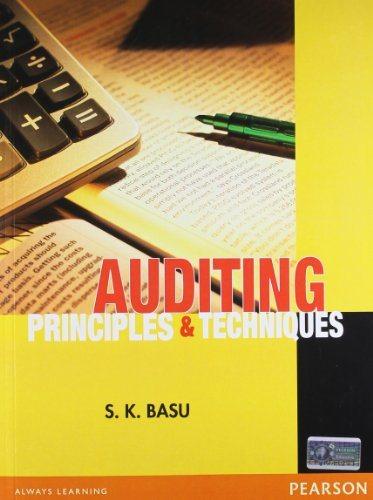Question
Looking to get an answer for QUESTION 18 (multi choice) - 17 left here for reference. QUESTION 17 Consider the following provision of public good
Looking to get an answer for QUESTION 18 (multi choice) - 17 left here for reference.
QUESTION 17
-
Consider the following provision of public good problem:
Citizen 1 initial budget: w1 = 100,000 $ Citizen 2 initial budget: w2 = 80,000 $ Cost of public good: C = 60,000 Citizen 1 Utility Function: U1(x1,g) = 2(x1) + 120,000g Citizen 2 Utility Function: U2(x2, g) = 2(x2) + 80,000g Notation: xi is the budget that citizen i spends on goods other than the public good; g is a public good indicator variable which takes on the value 1 when the public good is provided and zero otherwise.
Given this information, the level of utility of citizen 2 when 1 pays and 2 free-rides will be (type it using two decimal places and no thousand separator, e.g. 200000.00):
QUESTION 18
-
In the problem presented in last question, you can conclude that:
a. (i) If the price of the public good is divided by two, each citizen would have to pay more than his/her reservation price; (ii) the provision of the public good increases the level of utility of the citizens when each pays half of the cost; (iii) becoming a free-rider provides advantages; (iv) irrespective of what the other citizen decides to do, each citizen has an economic incentive to not pay; (v) if there is no private agreement, the government could force cooperation by introducing a tax to collect the money and use this money to finance the public good.
b. (i) If the price of the public good is divided by two, each citizen would have to pay less than his/her reservation price; (ii) the provision of the public good increases the level of utility of the citizens when each pays half of the cost; (iii) becoming a free-rider provides advantages; (iv) irrespective of what the other citizen decides to do, each citizen has an economic incentive to not pay; (v) a private agreement will most likely not occur; (vi) if there was no private agreement, there is no reason why the government should intervene; forcing individuals to do something that they chose not to do cannot increase their utility.
c. (i) If the price of the public good is divided by two, each citizen would have to pay less than his/her reservation price; (ii) the provision of the public good increases the level of utility of the citizens when each pays half of the cost; (iii) becoming a free-rider provides advantages; (iv) irrespective of what the other citizen decides to do, each citizen has an economic incentive to not pay; (v) a private agreement will most likely not occur; (vi) if there was no private agreement, there is no reason why the government should intervene; forcing individuals to do something that they chose not to do cannot increase their utility.
d. (i) If the price of the public good is divided by two, each citizen would have to pay less than his/her reservation price; (ii) the provision of the public good increases the level of utility of the citizens when each pays half of the cost; (iii) becoming a free-rider does not provide any advantages; (iv) irrespective of what the other citizen decides to do, each citizen has an economic incentive to not pay; (v) a private agreement will most likely not occur; (vi) if there was no private agreement, there is no reason why the government should intervene; forcing individuals to do something that they chose not to do cannot increase their utility.
e. (i) If the price of the public good is divided by two, each citizen would have to pay less than his/her reservation price; (ii) the provision of the public good increases the level of utility of the citizens when each pays half of the cost; (iii) becoming a free-rider provides advantages; (iv) irrespective of what the other citizen decides to do, each citizen has an economic incentive to not pay; (v) a private agreement will most likely not occur; (vi) if there is no private agreement, the government could force cooperation by introducing a tax to collect the money and use this money to finance the public good.
f. (i) If the price of the public good is divided by two, each citizen would have to pay more than his/her reservation price; (ii) the provision of the public good would decrease the level of utility of the citizens when each pays half of the cost; (iii) becoming a free-rider provides has no clear advantages; (iv) irrespective of what the other citizen decides to do, each citizen has an economic incentive to not pay; (v) a private agreement will most likely not occur; (vi) if there was no private agreement, there is no reason why the government should intervene.
g. (i) If the price of the public good is divided by two, citizen would have to pay more than his/her reservation price; (ii) the provision of the public good would decrease the level of utility of the citizens when each pays half of the cost; (iii) becoming a free-rider gives Citizen 1 clear advantages but there is incentive for Citizen 2 to free-ride; (iv) irrespective of what the other citizen decides to do, each citizen has an economic incentive to not pay; (v) a private agreement will most likely not occur; (vi) if there was no private agreement, there is no reason why the government should interven
Step by Step Solution
There are 3 Steps involved in it
Step: 1

Get Instant Access to Expert-Tailored Solutions
See step-by-step solutions with expert insights and AI powered tools for academic success
Step: 2

Step: 3

Ace Your Homework with AI
Get the answers you need in no time with our AI-driven, step-by-step assistance
Get Started


